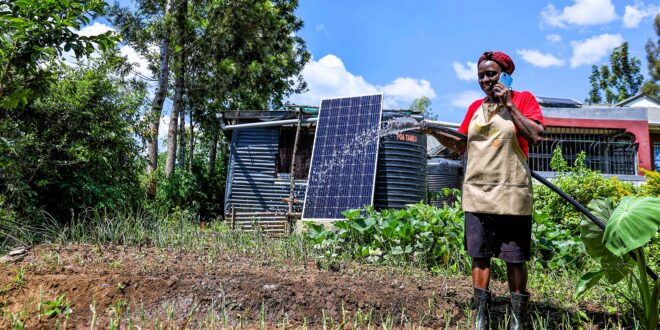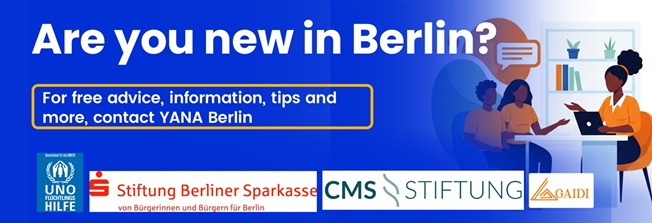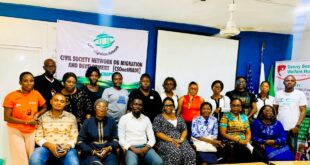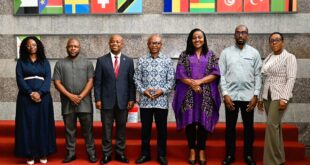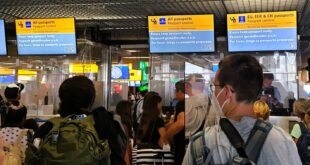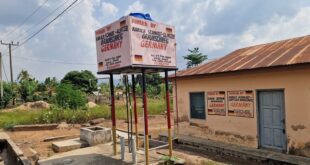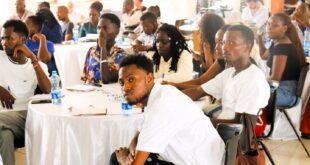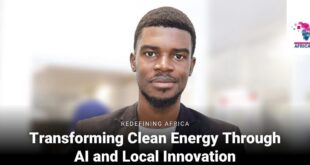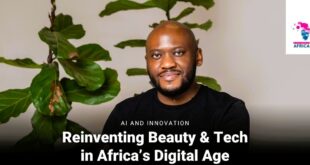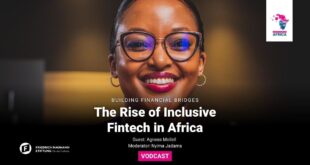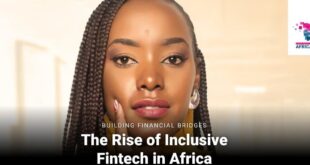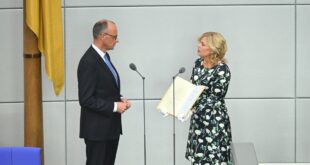By Max Cuvellier Giacomelli, Head of Mobile for Development, GSMA, and Sarah Malm, Executive Director, GOGLA (the Global Off-Grid Solar Association)
_________
For millions of Africans, a charged mobile phone is a gateway to markets, finance, healthcare, and education. Yet hundreds of millions of people still lack electricity, locking them out of the digital economy before they can even log on. Without power, there can be no digital inclusion.
We rely on our fully charged mobile devices every day. So why has it taken so long to recognize the complementarity of energy and connectivity? It’s time to download a new approach that syncs how digital platforms expand energy access with how electricity powers the tools of digital inclusion.
For policymakers and funders, digital inclusion and electrification must no longer be seen as isolated development goals, but as interdependent twin transitions that can catalyze development impact at scale.
Off-Grid Solar and Mobile Connectivity: A Symbiotic Relationship
Across Africa, where grid and landline infrastructure remain underdeveloped, people depend heavily on off-grid solar for electricity and mobile phones for connectivity. For these communities, life is no longer dictated by daylight hours or dangerous, expensive kerosene. Activities continue after dark using clean, affordable energy. Around the world, 385 million people use off-grid solutions that can power mobile phones, including one in five Kenyans.
Mobile technologies have helped off-grid solar businesses reach these populations rapidly through digitally enabled pay-as-you-go (PAYGo) systems that slash upfront costs. In turn, PAYGo solar has nurtured digital connectivity and literacy. A 2020 GSMA study found that PAYGo solar increases uptake and use of digital financial and mobile data services. Rural communities now use phones to join the financial economy, access information, gain skills and build business connections.
The economic potential is vast. In 2023, the mobile industry contributed 7% ($140 billion) of Africa’s GDP, and is expected to reach $170 billion by 2030. More than 100 billion transactions worth over $1.68 trillion flowed through mobile money accounts. Solar energy is set to be the biggest driver of green jobs on the continent, potentially generating upwards of 800,000 jobs by 2030 – half from distributed solar.
These twin sectors reinforce each other’s growth: PAYGo solar adoption amplifies data and mobile money revenues for operators, while solar companies expand their reach through digital payments, AI-driven credit scoring, and even gamification to incentivize on-time repayment.
For farmers and food producers, this convergence is already powering harvests and commerce. Across over 20 markets in Africa, Koolboks offers solar-powered PAYGo refrigeration to micro businesses such as small-scale fish traders—most of them women—reducing waste and boosting incomes. In Kenya, SunCulture customers use solar irrigation to grow more and sell into wider markets via mobile platforms.
The Urgent Challenge and Historic Opportunity
More than 680 million people still lack electricity, mostly in sub-Saharan Africa. Some 350 million are out of mobile broadband coverage and 3.1 billion do not use mobile internet despite being covered. Without electricity, people remain locked out of digital tools, mobile money, and the benefits of next-generation platforms. Off-grid solar is the fastest, most cost-effective way to reach over half of those without power. While affordability remains the key barrier, digital platforms and AI are making financing, monitoring, and subsidy delivery more efficient, scalable, and transparent.
Mission 300 offers a major opportunity to approach energy access and digital inclusion jointly. At the GSMA MWC Africa conference in Kigali, World Bank representatives showcased how Mission 300 will address the synergies and co-dependencies between energy and digital. In practice, this means coordinated planning across energy and digital portfolios, regular dialogue between energy and ICT ministries, and intentional efforts to convene impact investors actively seeking dual impact strategies.
Encouraging examples already exist: in Madagascar, the energy and digital ministries are working together with donors on the Digital and Energy Connectivity for Inclusion project. Telecoms are investing in off-grid solar at scale to power their networks and help customers stay connected.
In Rwanda, the National Electrification Plan and Smart Rwanda Master Plan both emphasize integrated energy and ICT expansion. That’s one reason Rwanda has a rapidly growing digital payment sector while also making tremendous progress on energy access over the last decade—progress made possible through coordinated interventions across energy access and digital inclusion..
Regionally, platforms like Smart Africa and the African Union’s Digital Transformation Strategy can help harmonize policies and attract larger-scale, dual-impact investment.
We need to see more of it. Coordinated policy and investment can stretch limited resources further and boost private sector returns. It is time to shape these twin transitions together.
![]()
About GSMA
The GSMA is a global organisation unifying the mobile ecosystem to discover, develop and deliver innovation foundational to positive business environments and societal change. Since its creation in 2008, GSMA Mobile for Development (M4D) has been focused on driving innovation in digital technology to reduce inequalities in our world. With the support of donors, operators, members and partners, and thanks to its unique positions at the intersection of the tech and development ecosystems, M4D aims to deliver large-scale socio-economic impact and to contribute to global climate action efforts. Its team of over 100 experts is helping to tackle challenges – and realise opportunities – related to digital inclusion, financial inclusion and gender equality; climate action, food security, and urban resilience; humanitarian contexts and emerging technologies. To date the work of M4D and its partners has reached more than 260 million people.
About GOGLA
GOGLA is the global association for the off-grid solar energy industry, representing over 200 members working to transform lives through clean, affordable electricity, and high-quality solar products and services. More than 560 million people benefit from off-grid solar to power their homes, farms, enterprises and public infrastructure. With the right support, off grid solar companies can scale rapidly to improve the lives of 1 billion people by 2030. GOGLA drives this progress by serving as a central hub for the sector, offering vital market data, advocating for supportive policies and increased investment, and providing value-added services to our members. Learn more at gogla.org.
 THE AFRICAN COURIER. Reporting Africa and its Diaspora! The African Courier is an international magazine published in Germany to report on Africa and the Diaspora African experience. The first issue of the bimonthly magazine appeared on the newsstands on 15 February 1998. The African Courier is a communication forum for European-African political, economic and cultural exchanges, and a voice for Africa in Europe.
THE AFRICAN COURIER. Reporting Africa and its Diaspora! The African Courier is an international magazine published in Germany to report on Africa and the Diaspora African experience. The first issue of the bimonthly magazine appeared on the newsstands on 15 February 1998. The African Courier is a communication forum for European-African political, economic and cultural exchanges, and a voice for Africa in Europe.

